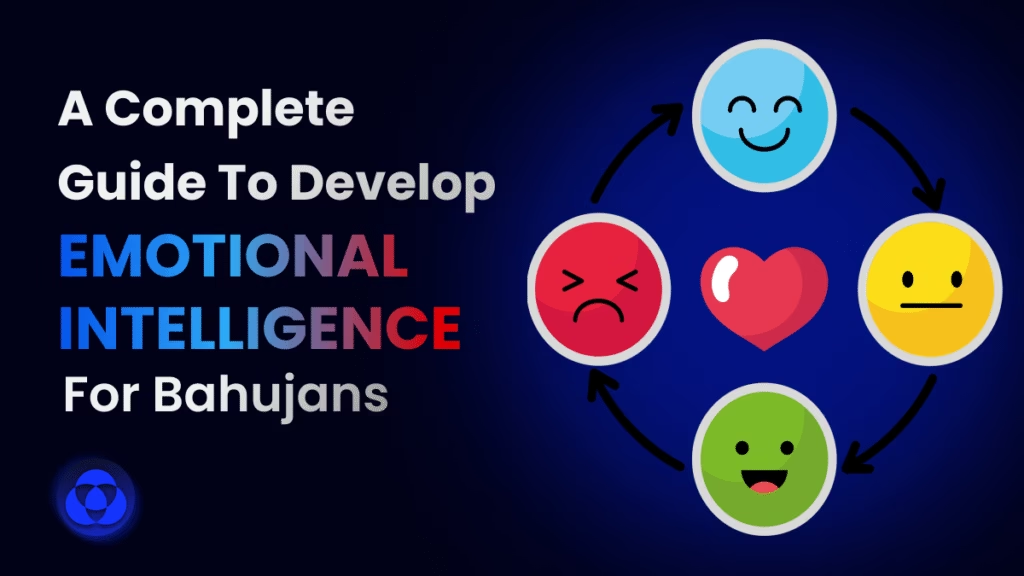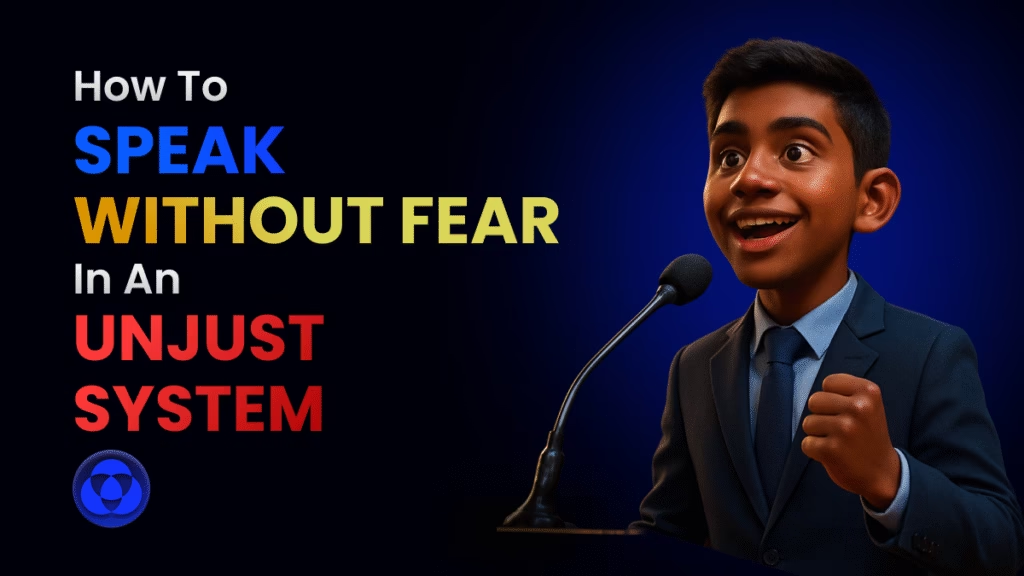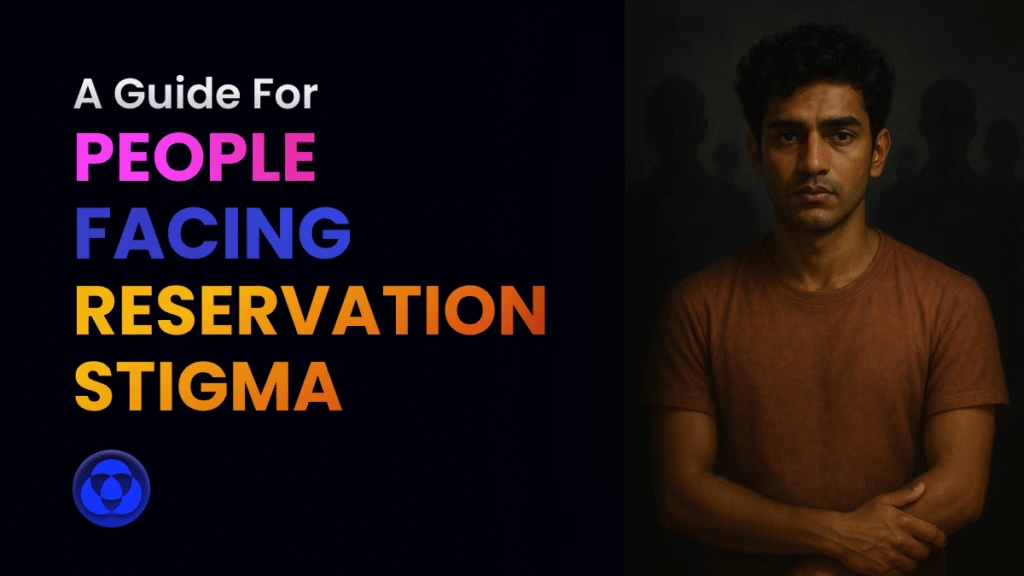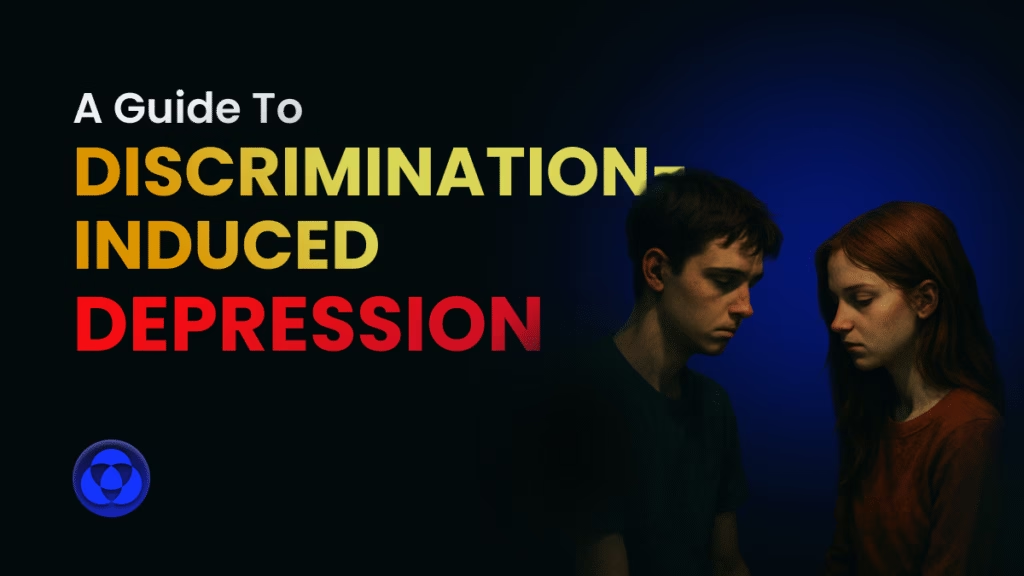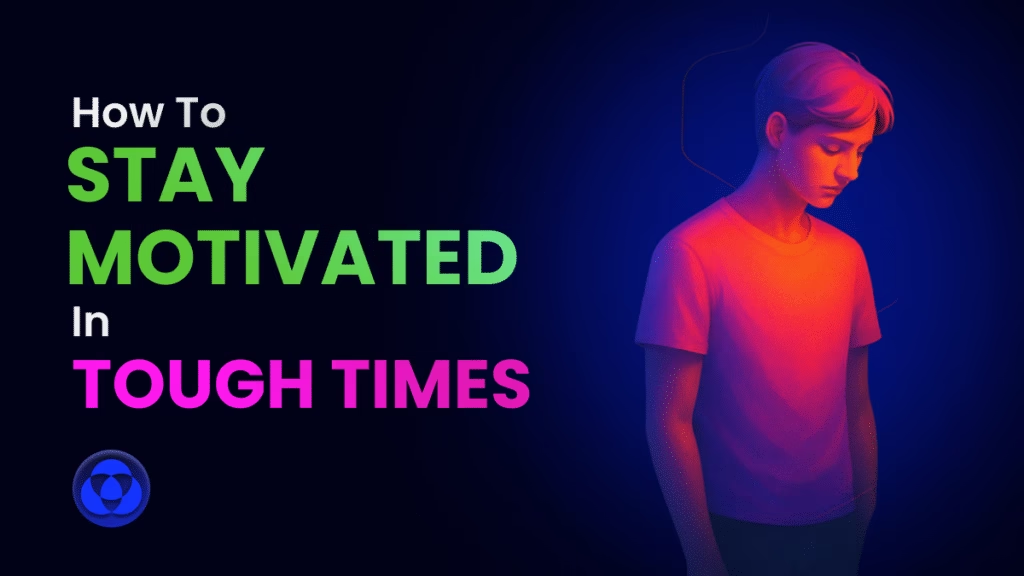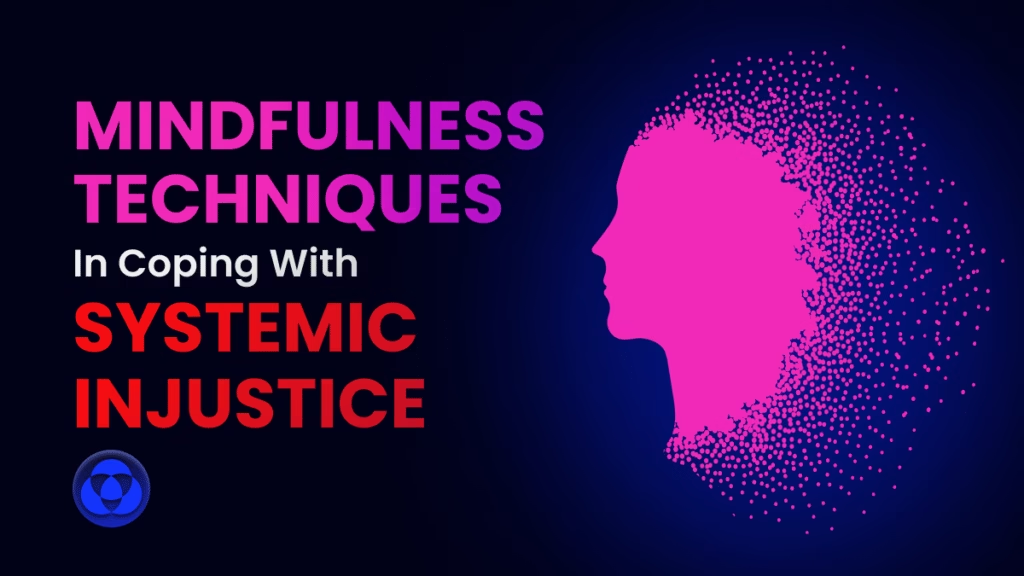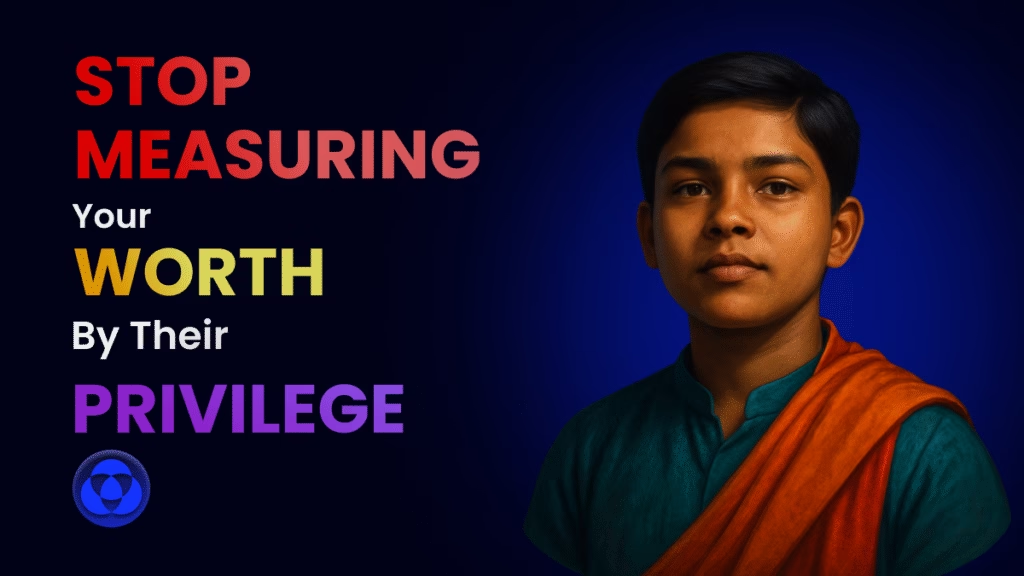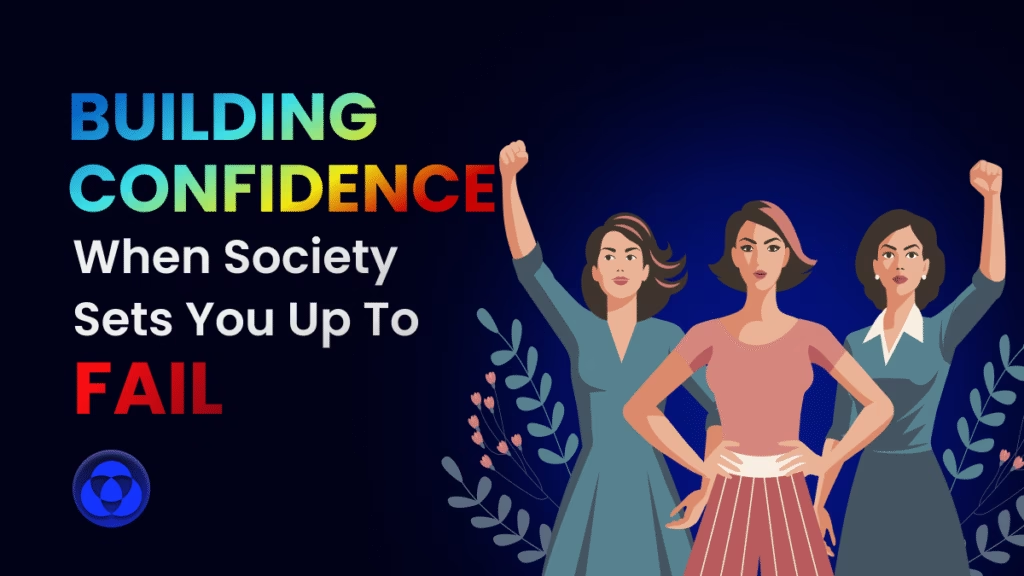Have you ever wondered why some people handle life’s challenges with grace, while others struggle despite facing similar obstacles? The answer often lies in emotional intelligence, a set of skills that can transform how we respond to discrimination, build confidence, and create real change in our lives and communities.
For Bahujans who have endured centuries of oppression and still face discrimination, developing emotional intelligence is more than helpful; it is transformative. It offers tools to process painful experiences, respond to microaggressions, and build the inner strength needed to thrive in challenging environments.
This guide will help you understand emotional intelligence, its scientific basis, and practical ways to develop these skills in your daily life, whether you are a student, professional, or simply looking to grow. Let’s begin this journey together.
The Origins of Emotional Intelligence
The idea of emotional intelligence dates back to ancient times. Nearly 2,000 years ago, Plato observed that “All learning has an emotional base.” Despite these early insights, the systematic study of emotional intelligence in its modern sense began only recently.
In 1990, Peter Salovey and John D. Mayer introduced the term “emotional intelligence.” They described it as a type of social intelligence that enables individuals to recognize and understand their own emotions as well as those of others, to distinguish between different feelings, and to use this awareness to guide their thoughts and actions. Their findings indicated that people who could clearly identify and label their emotions tended to recover more quickly from distressing experiences.
Emotional intelligence became widely recognized after Daniel Goleman, a science journalist for the New York Times, released his book “Emotional Intelligence” in 1995. Goleman emphasized that emotional intelligence, alongside cognitive intelligence, plays a vital role in achieving success both in personal life and in the workplace.

The Science Behind Emotional Intelligence
Research has consistently shown that emotional intelligence has profound effects on our mental and physical well-being. A 2007 meta-analysis of 44 studies found that emotional intelligence was strongly associated with better mental and physical health. This finding was replicated in 2010 in a larger study involving nearly 20,000 participants.
For marginalized communities, emotional intelligence takes on additional significance. Studies have shown that developing emotional intelligence promotes commitments to social justice and equity, and creates a stronger likelihood for allies to speak up about injustice. When we can step back from automatic emotional responses formed in the context of inequity, we can begin to see where privilege prevents allyship and actively contributes to oppression.
Research has also revealed connections between emotional intelligence and:
- Reduced substance dependence: Studies have found that individuals with cannabis dependence scored exceptionally low on emotional intelligence compared to control groups.
- Improved self-esteem: The same study found connections between low emotional intelligence and low self-esteem.
- Better recovery from addiction: As treatment progressed and addiction levels decreased, emotional intelligence scores improved.
Understanding Emotional Intelligence for Bahujans
For Bahujans, emotional intelligence holds special significance because of the historical and ongoing experiences of discrimination they face. When someone is part of a community that has endured centuries of oppression, developing emotional intelligence goes beyond personal growth. It becomes essential for survival, for resisting injustice, and for driving meaningful change.
The Five Components of Emotional Intelligence
Emotional intelligence consists of five key components:
1. Self-awareness: Understanding your own emotions, strengths, and weaknesses. This means recognizing when you’re feeling angry, sad, or happy, and understanding why those feelings arise.
2. Self-regulation: Managing your emotions, especially in challenging situations. This doesn’t mean suppressing feelings but channeling them appropriately.
3. Motivation: The ability to stay focused on your goals despite setbacks. This internal drive helps you persist when facing obstacles that might discourage others.
4. Empathy: Understanding how others feel and seeing situations from their perspective. This helps build stronger connections with people from all backgrounds.
5. Social skills: Building positive relationships, communicating effectively, and handling conflicts constructively. These skills help you network, collaborate, and lead others.

Why Emotional Intelligence Matters Especially for Bahujans?
When you belong to a marginalized community, emotional intelligence offers particular advantages:
Processing Discrimination: Emotional intelligence gives you tools to process experiences of discrimination without internalizing negative messages about your worth.
Navigating Hostile Environments: In educational institutions or workplaces where you might be the only person from your community, emotional intelligence helps you respond effectively to microaggressions and bias.
Building Resilience: The ability to bounce back from setbacks is crucial when you face additional barriers due to your identity.
Creating Change: Emotional intelligence helps you channel righteous anger into effective advocacy and change-making.
Breaking Generational Patterns: By developing emotional regulation skills, you can make decisions based on long-term goals rather than short-term emotional reactions, helping break cycles of limited opportunity.

Challenges Bahujans Face in Developing Emotional Intelligence
Before we dive into how to develop emotional intelligence, it’s important to acknowledge the unique challenges that Bahujans may face in this journey:
Historical Trauma
Centuries of oppression have created intergenerational trauma that can make emotional regulation more difficult. When your community has experienced historical injustice, certain triggers may provoke stronger emotional responses.
Limited Access to Resources
Many Bahujan communities have reduced access to mental health resources, emotional intelligence education, and supportive environments where these skills can be practiced.
Stereotype Threat
The pressure of being judged according to negative stereotypes about your community can deplete cognitive resources needed for emotional regulation.
Emotional Policing
People from marginalized communities often face a double standard when expressing emotions. Anger that would be seen as “passionate” in dominant groups may be labeled as “aggressive” when expressed by Bahujans.
Lack of Representation
Without seeing people from your community in positions of leadership modeling emotional intelligence, it can be harder to envision what these skills look like in practice.
A Step-by-Step Guide to Developing Emotional Intelligence
Despite these challenges, emotional intelligence can be developed with practice and intention. Here’s a comprehensive guide to building these skills:
Step 1: Cultivate Self-Awareness
Self-awareness is the foundation of emotional intelligence. It involves understanding your emotions, recognizing your strengths and weaknesses, and being honest with yourself.
Practical techniques:
- Daily emotion check-ins: Take 5 minutes each day to ask yourself: “What am I feeling right now? Why might I be feeling this way?”
- Emotion journaling: Keep a journal where you track your emotional responses throughout the day. Note what triggered the emotion, how you responded, and any patterns you notice.
- Body scanning: Practice noticing where you feel emotions in your body. Does anger create tension in your shoulders? Does anxiety cause a knot in your stomach?
- Feedback seeking: Ask trusted friends or mentors for honest feedback about your blind spots.
Real-life example:
Priya, a Bahujan student at a prestigious university, noticed she would become quiet in class discussions despite having valuable insights to share. Through daily emotion check-ins, she realized she was experiencing anxiety triggered by previous experiences where her contributions were dismissed. By naming this emotion, she could begin to address it rather than being controlled by it.
Step 2: Develop Self-Regulation
Self-regulation involves managing your emotions effectively, especially in challenging situations. It’s not about suppressing feelings but channeling them constructively.
Practical techniques:
- Pause before responding: When facing a triggering situation, take a deep breath and count to ten before responding.
- Identify healthy coping mechanisms: Find activities that help you process difficult emotions, such as exercise, creative expression, or talking with supportive friends.
- Practice mindfulness: Regular meditation, even just 5-10 minutes daily, can strengthen your ability to observe emotions without immediately reacting to them.
- Create emotional regulation plans: Prepare strategies in advance for situations you know might be emotionally challenging.
Real-life example:
Rajesh, a Bahujan professional, faced a microaggression during a team meeting when a colleague expressed surprise at his articulate presentation. Instead of responding immediately from a place of hurt and anger, he took a deep breath and calmly addressed the underlying assumption. This measured response earned respect from others in the room while effectively addressing the bias.
Step 3: Strengthen Your Motivation
Motivation in emotional intelligence refers to your ability to persist toward goals despite setbacks and maintain optimism even in challenging circumstances.
Practical techniques:
- Connect goals to values: Link your personal and professional goals to your core values and the well-being of your community.
- Break large goals into smaller steps: Create manageable milestones to maintain momentum and celebrate small victories.
- Develop a growth mindset: View challenges as opportunities for learning rather than evidence of personal failure.
- Create a motivation board: Collect images, quotes, and reminders of why your goals matter to you.
Real-life example:
Meena, a Bahujan student pursuing medicine, faced discouragement when a professor suggested she consider a “less competitive” field. Instead of internalizing this message, she connected her goal of becoming a doctor to her value of serving underrepresented communities. She broke down her preparation into weekly study goals and surrounded herself with images of Bahujan doctors who had succeeded before her. This helped her maintain motivation despite the discouragement.
Step 4: Cultivate Empathy
Empathy involves understanding others’ emotions and perspectives, even when they differ from your own. This skill helps build stronger relationships and navigate complex social situations.
Practical techniques:
- Practice active listening: Focus completely on understanding others rather than planning what you’ll say next.
- Ask curious questions: When someone shares their experience, ask thoughtful questions to deepen your understanding.
- Read diverse literature: Expose yourself to stories from different perspectives to expand your empathetic imagination.
- Role-playing exercises: Practice stepping into others’ shoes to understand different viewpoints.
Real-life example:
Arjun, a Bahujan team leader, noticed tension between two team members with different working styles. Instead of imposing his own solution, he practiced active listening with each person individually, asking curious questions to understand their perspectives. This empathetic approach allowed him to create a compromise that respected both team members’ needs and strengthened team cohesion.
Step 5: Enhance Social Skills
Social skills involve effective communication, conflict resolution, and relationship building. These skills help you navigate professional and personal interactions successfully.
Practical techniques:
- Practice clear communication: Express your thoughts and needs directly but respectfully.
- Develop conflict resolution skills: Learn techniques for addressing disagreements productively rather than avoiding them9.
- Build your network: Intentionally connect with people from diverse backgrounds and experiences.
- Observe skilled communicators: Pay attention to people who navigate social situations effectively and learn from their approaches.
Real-life example:
Sunita, a Bahujan professional in a corporate environment, initially struggled with speaking up in meetings. She practiced clear communication by preparing key points in advance and starting with smaller group settings. She also built relationships across departments through informal coffee meetings. Over time, these enhanced social skills helped her gain recognition for her ideas and eventually secure a promotion.

Implementing Emotional Intelligence in Different Life Contexts
For Students
As a Bahujan student, emotional intelligence can help you navigate educational environments that may not always feel welcoming or supportive.
In the classroom:
- Manage test anxiety: Use self-regulation techniques like deep breathing before exams.
- Build relationships with professors: Use social skills to connect with faculty during office hours.
- Handle group projects: Practice empathy when working with classmates from different backgrounds.
- Respond to microaggressions: Use self-awareness and self-regulation to address bias effectively.
Study habits:
- Maintain motivation: Connect your studies to your larger purpose and community impact.
- Regulate frustration: Develop strategies for managing difficult subjects without giving up.
- Create support networks: Use social skills to build study groups and peer support systems.
Real-life implementation plan:
- Morning: Start with a 5-minute self-awareness check-in to identify any emotions that might affect your day.
- Before class: Take three deep breaths to center yourself and set an intention for active participation.
- During challenging interactions: Pause before responding, name the emotion you’re feeling internally, and choose a constructive response.
- Evening: Reflect on emotional challenges faced during the day and plan strategies for similar situations.
- Weekly: Connect with a trusted friend or mentor to discuss emotional challenges and successes.
For Working Professionals
As a Bahujan professional, emotional intelligence can help you navigate workplace dynamics, build influential relationships, and advance in your career.
In the workplace:
- Navigate office politics: Use social awareness to understand unwritten rules and power dynamics.
- Handle feedback: Use self-regulation to receive criticism constructively rather than defensively.
- Lead teams effectively: Use empathy to understand team members’ perspectives and motivations.
- Negotiate successfully: Use emotional awareness to understand others’ needs and find win-win solutions.
Career advancement:
- Build a professional network: Use social skills to create meaningful connections across your industry.
- Maintain resilience: Use self-regulation to bounce back from setbacks and rejections.
- Demonstrate leadership potential: Use empathy and social skills to support colleagues and contribute to team success.
Real-life implementation plan:
- Before work: Take a few minutes to set your intention for the day and prepare for any challenging interactions.
- During meetings: Practice active listening by focusing completely on the speaker rather than planning your response.
- When receiving criticism: Take a deep breath, thank the person for their feedback, and ask clarifying questions before responding.
- After difficult interactions: Take a short break to process your emotions before returning to work.
- End of day: Reflect on what went well and what you might handle differently tomorrow.
- Monthly: Seek feedback from trusted colleagues on your communication and relationship-building skills.
Overcoming Barriers to Emotional Intelligence Development
When Facing Discrimination
Discrimination can trigger strong emotional responses that make it difficult to practice emotional intelligence. Here’s how to handle these situations:
- Recognize the validity of your emotions: Anger, hurt, and frustration are appropriate responses to discrimination. Acknowledge these feelings without judgment.
- Create space before responding: When possible, take time to process your emotions before deciding how to respond.
- Distinguish between reaction and response: A reaction is automatic; a response is chosen. Give yourself permission to choose your response.
- Seek support: Process experiences of discrimination with trusted friends or community members rather than carrying the burden alone.
- Practice self-compassion: Be gentle with yourself when you don’t respond perfectly. Learning to navigate discrimination with emotional intelligence is an ongoing journey.

When Lacking Role Models
If you don’t see examples of emotional intelligence in your immediate environment:
- Seek virtual mentors: Look for books, podcasts, and videos featuring Bahujan leaders who demonstrate emotional intelligence.
- Create peer learning communities: Form groups with others interested in developing these skills together.
- Become the role model: Recognize that by developing these skills, you become an example for others in your community.
When Facing Systemic Barriers
Individual emotional intelligence exists within larger systems that may be unjust. Remember:
- Balance individual and collective approaches: While developing personal emotional intelligence, remain engaged in collective efforts for systemic change.
- Recognize limits: Emotional intelligence can help you navigate unfair systems more effectively, but the responsibility for changing those systems doesn’t rest solely on your shoulders.
- Practice community care: Support others in your community as you all navigate these challenges together.
Success Stories: Emotional Intelligence in Action
Transforming Education Through Emotional Intelligence
Anshika, a Bahujan student, noticed that her classmate Abhijit was having difficulty with their group science project. Rather than becoming frustrated, she relied on her emotional intelligence to support him.
She took the time to listen to his concerns, divided the project into more manageable tasks, and offered encouragement throughout the process. As a result, Abhijit felt comfortable rejoining the group, and the entire team was able to work together more effectively.
This example demonstrates how emotional intelligence can enhance the learning experience, benefiting not only the individual but also everyone involved.
Building Leadership Through Emotional Intelligence
Emotional intelligence is very helpful for leaders. A Bahujan leader with good emotional intelligence can:
- Share their ideas more clearly
- Be more persuasive when speaking
- Handle stressful situations better
- Manage their own feelings while supporting team members
One Bahujan software developer used emotional intelligence to improve his team. At first, he had trouble communicating with colleagues. By developing empathy and becoming a better listener, he understood his teammates better. This led to better teamwork and eventually a promotion to leadership, where he now creates a welcoming environment for people from all backgrounds.ng skills, which helped him better understand his colleagues’ perspectives. These improvements led to better collaboration and eventually a promotion to a leadership position where he now creates an inclusive environment for team members from all backgrounds.

Frequently Asked Questions
Q1: Is emotional intelligence more important than academic intelligence?
Both matter, but in different ways. Academic intelligence helps with technical skills, while emotional intelligence helps with relationships and resilience. For Bahujans facing social barriers, emotional intelligence is especially valuable for navigating complex situations.
Q2: Can emotional intelligence be learned? Yes! Unlike IQ, emotional intelligence can be developed with practice. Anyone can improve their emotional intelligence skills regardless of their starting point.
Q3: How long does it take to develop emotional intelligence? It’s a lifelong journey. You might see small improvements within weeks, but deeper changes take months or years. Even small improvements can significantly impact your relationships.
Q4: How can I maintain emotional intelligence when facing discrimination? Acknowledge your emotions without judgment and process feelings with trusted people. Responding with emotional intelligence means choosing your response rather than reacting automatically. Sometimes setting clear boundaries or self-advocacy is the most emotionally intelligent response.
A Message of Support
As you begin to develop your emotional intelligence, remember that you are part of a larger community. The challenges you encounter as a Bahujan, whether in education, your career, or personal growth, are real. At the same time, you have the strength and ability to build the emotional skills needed to face them.
Each time you practice self-awareness, manage a difficult emotion, or choose empathy instead of judgment, you are not only transforming your own life. You are also creating positive effects that extend to your family, your community, and future generations.
The journey toward greater emotional intelligence can be challenging. There will be moments when these skills seem out of reach, when old habits return, or when systems of oppression feel overwhelming. On those days, treat yourself with kindness. Growth does not always happen in a straight line, and every bit of progress, no matter how small, is meaningful.
We believe in your ability to learn and use these skills to create the life you deserve. Every emotion you experience, from joy and hope to anger and grief, is important and valuable. Learning to understand and channel these emotions is a powerful gift you can give to yourself and to those around you.
You already possess what you need to start this journey. Begin with what you have now, and notice how small steps can lead to significant change. You are not alone; we are here to support you at every stage of your growth.
This article is for educational purposes only. It aims to help Bahujan individuals develop emotional intelligence for personal and professional growth.

